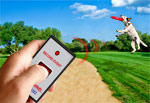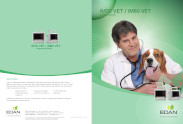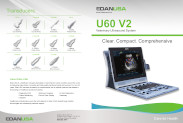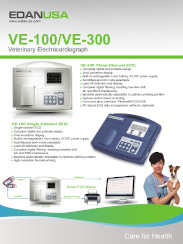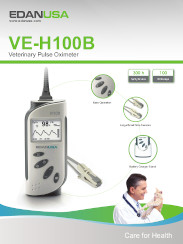
2025 Veterinary Holter and Event Monitoring Costs- through Pet Cardiology
Holter Monitoring (using our digital recorders). We offer discounts on repeat tests within 6 months as well as for drug studies.
24 hours: $200.00
48 hours: $345.00
3 days: $435.00
4 days: $535.00
5 days: $635.00
6 days: $735.00
7 days: $835.00
Holter Monitoring (your monitor/flashcard: $95.00
Weekly Transtelephonic Monitoring (TTM): $350.00/week
Rhythm strips: $169.00 which includes the cardiology consultation
$50.00 we send the strips/report directly to your office
Cardiology Consultations from CardicVet Inc.
(These are additional charges if requested). The consults listed below can be ordered directly through Dr. Salinger's office or through us. The fees below reflect her standard charges, there are no additional charges for our assistance.
Routine consults are completed within 72 hours of submission. STAT results are within 48 hours of submission.
ECG Diagnostic Interpretation
-
Price: $37.00
-
Price: $69.00
-
Price: $101.00
-
Price: $59.00
Echo Diagnostic Interpretation
-
Price: $144.00
-
Price: $176.00
-
Price: $174.00
-
Price: $206.00
Combination Diagnostic Interpretation
-
Price: $117.00
-
Price: $104.00
-
Price: $246.00
-
Price: $278.00
-
Price: $216.00
-
Price: $250.00
Radiograph Diagnostic Interpretation
-
Price: $49.00
-
Price: $77.00
-
Price: $26.00
-
Price: $37.00
Holter and Event Monitor Diagnostic Interpretation
-
Price: $135.00
-
Price: $135.00
STAT Request - within 48 hrs or sooner for both Holter and Event Monitor Price: add $32.00
3 way phone call with rdvm and cardiologist and pet owner
Price: $105.00
IMPORTANT!
If you are a pet owner, please contact your primary care veterinarian to have them schedule a cardiac evaluation. Dr. Saelinger can only work through your primary care veterinarian.
If you would like an in-person visit with Dr. Saelinger, you can contact her at VCA ASEC, Los Angeles at 310-913-4122. Please call her office directly for any appointments. You can also email her at cardiacvet.com.
Meet Dr. Saelinger
Dr. Saelinger is the founder and CEO of Cardiac Vet, Inc., a telemedicine service for interpretation of cardiac diagnostic studies and a mobile echo service for veterinarians. Dr. Saelinger is a graduate of The Schreyer Honors College at the Pennsylvania State University. She obtained her veterinary degree from the University of Pennsylvania in 2007.
She then com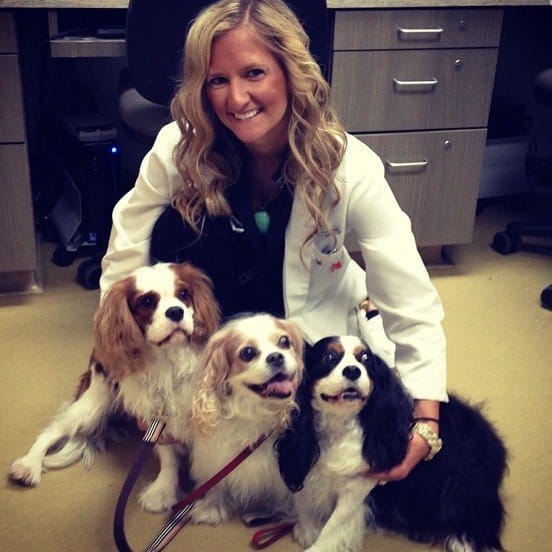 pleted a one-year rotating internship at the University of Florida in Gainesville, followed by a cardiology internship and cardiology residency at Louisiana State University from 2008-2012. In 2012, she successfully completed the ACVIM exams and the Cardiology specialty boards to become a Diplomate (Board Certified Cardiologist) of the ACVIM in the specialty of Cardiology.
pleted a one-year rotating internship at the University of Florida in Gainesville, followed by a cardiology internship and cardiology residency at Louisiana State University from 2008-2012. In 2012, she successfully completed the ACVIM exams and the Cardiology specialty boards to become a Diplomate (Board Certified Cardiologist) of the ACVIM in the specialty of Cardiology.
Dr. Saelinger’s clinical interests include medical and surgical treatment of arrhythmias.
She is one of two cardiologists in the United States who specialize in implantable cardioverter defibrillator (ICD) placement, programming and defibrillation. She also customizes pacemaker programming for individual canine patients. She has vast experience and a long time special interest in the pathophysiology & treatment of arrhythmogenic cardiomyopathy (AC) of Boxers and English Bulldogs.
Diagnostic consultations provided by CardiacVet, Inc. are interpreted by:
Dr. Carley Saelinger, VMD, DACVIM (cardiology)
Dr. Nicole Culwell, DVM, DACVIM (cardiology)
Dr. Scott Forney, DVM, DACVIM (cardiology)
Dr. Logan Funk, DVM, DACVIM (cardiology)
Dr. Timothy Hodge, DVM, DACVIM (cardiology)
Dr. Hannah Hogkiss-Geere, BVM&S, MSc PhD, DECVIM-CA (cardiology), SFHEA, FRCVS
Dr. Rima Kharbush, DVM, DACVIM (cardiology)
Dr. Eva Larouche-lebel, DVM, DACVIM (cardiology)
Dr. Stacey Leach, DVM, DACVIM (cardiology)
Dr. Nekesa Morey, BVM&S, MRCVS, MS, DACVIM (cardiology)
Dr. Keaton Morgan, BVSc (hons), DACVIM (cardiology)
Dr. Jon Stack, DVM, DACVIM (cardiology)
Dr. Simon Swift, MA, VetMB, CertSAC, DipECVIM-CA (Cardiology), MRCVS, UK and European recognized specialist in cardiology
Dr. Carl Toborowsky, MA, MS, VMD, DACVIM (cardiology), licensed and board certified cardiologists
What PetCardiology/CardioPaws offers…
Transtelephonic Monitoring Services
CardioPaws is one of only a few facilities in the world that provide transtelephonic monitoring (TTM) for Veterinarians and we have been doing so for over 25 years. TTM is a useful tool that aids in the detection of cardiac arrhythmias when the symptoms are witnessed and occur fewer than 2-3 times a week.
Record anytime, anywhere at the touch of a button
Simple one touch reset button
Transmits & documents Cardiac Arrhythmias
Compact & lightweight only 2 oz.
Technology and professional staff you can trust
- Cost includes use of monitor, FedEx shipping overnight or 2 day (depends upon location), supplies and analysis
- Event monitoring results available immediately
- Online viewing of TTM monitor results
- No contracts to sign
- We utilize "State-of-the-Art" high end cardiac monitoring equipment from Universal Medical, Braemar and the well known King of Hearts.
- Historical "End of Monitoring Period" report provided for each client (for event monitoring only)
Technology and professional staff you can trust
How to apply the Event Monitor
Snap the wires on to the electrodes before placing on the patient. A dot of surgical glue placed on the sticky side of the electrode will help prevent electrodes from coming loose. Secure the wires on to the electrodes with tape to help stabilize. Wrap the patient with Vet Wrap or something similar, and form a figure 8 across the chest. An E collar might help prevent chewing the monitor or wires. The monitor should be placed where the owner can easily access it to press the record button when a symptom is observed.
Wait one minute before pressing the record button. Once pressed, it will record for approximately 20 seconds and will then stop on its own. The monitor has a memory so will store the 20 seconds you hear plus an additional 45 seconds before the button is pressed. It will then resume monitoring until the record/event button is pressed again.
The monitor will hold either 3-5 events (depending upon the type of monitor). The owner has the option of calling into the monitoring center each time a recording is made or when the monitor is full. When the monitor is full it will start beeping. For severe symptoms, such as syncope/collapse, the recording should be called in right away.
When calling in, please give the animals name along with the owner’s last name. You will be told to remove the cable from the monitor and to hold the monitor to the mouth piece of the phone (the part you speak into) over the small hole on the front of the monitor and press the playback/send button. When the monitor is finished playing back, it will stop on its own. Come back to the phone for further instructions on how to erase the data.
Please call us after the patient is hooked-up and a recording is made so that we may determine if the placement is correct and the monitor wasn’t damaged in shipping. The monitoring center is available to take patient calls Monday – Friday 5am – 5pm PST.
Holter Monitoring
Holter monitoring is a valuable noninvasive tool for monitoring the cardiac rhythm over a 24-48 hour period or longer during normal daily activities. The advent of this diagnostic test has demonstrated that the incidence of serious arrhythmias is much greater than previously determined using routine electrocardiography. A resting electrocardiogram is typically recorded for several seconds to several minutes and is likely to miss or underestimate the underlying arrhythmia.
Holter monitoring is a good way to detect heart problems that other tests can’t, in particular, Cardiomyopathy which is a disease of the heart muscle. Dogs and cats that seem fit and seemingly healthy, even with normal ECGs and Echocardiograms, can suddenly collapse and die due to lethal arrhythmias. Some of these arrhythmias include ventricular tachycardia and prolonged pauses in heart rate.
Our Equipment
Scanning Software
Del Mar Pathfinder
SpaceLabs Pathfinder
Biomedical Systems
SpaceLabs Impressario and Pathfinder
NorthEast Monitoring, Inc.
Holter Monitors (that we use and also monitors we are able to scan off of)
SpaceLabs/DelMar - Aria
SpaceLabe - LifeCard
SpaceLabs - EVO
SpaceLabs - Eclipse Pro
SpaceLabs - Eclipse Mini (wireless, 1 patch snap on)
NorthEast Medical - DR-180, DR-200, DR-400
Braemar- DXP 1000
Our fee includes:
- Results within 24 hours… or sooner
- Fee includes analysis, FedEx shipping overnight or 2 day, supplies and use of the monitor
- No contracts to sign
- Upon receipt of data, 24 hour turnaround guaranteed on all reports (M-F)
- Stat reports at no additional cost
- Full disclosure available upon request
- HRV/QT available upon request
Which breeds benefit from Holter Monitoring?
Many breeds are prone to Cardiomyopathy, however a 24 hour Holter procedure can pick up rhythm abnormalities early and treatment can extend an animals life. Some of the Dog and Cats breeds listed below have been identified to be prone to Cardiomyopathy.
DOGS
Boxer, Great Dane, Great Pyrenees, Bull Mastiff, Cocker Spaniel, German Sheppard, Golden Retriever, Doberman Pincher, Irish Wolfhound, Labrador Retriever, Rhodesian Ridgeback, Newfoundland, Old English Sheepdog, Bouvier de Flanders, Rottweiler, Saluki.
CATS
Maine Coon, Ragdoll, Persians, American and British Shorthairs, Turkish Vans, and Norwegian Forest cats, to name a few.
Signs and Symptoms (both dogs and cats):
- Lethargy
- Weight loss
- Rapid, labored & noisy breathing
- Decreased activity
- Congestive heart failure
- Irregular heart rhythm
- Heart murmur
- Coughing
- Lameness or paralysis of the hind legs
Some of the Holter Monitors we use include:
 New SpaceLabs Eclipse Pro-14days
New SpaceLabs Eclipse Pro-14days
Wireless Monitors with a single patch electrode
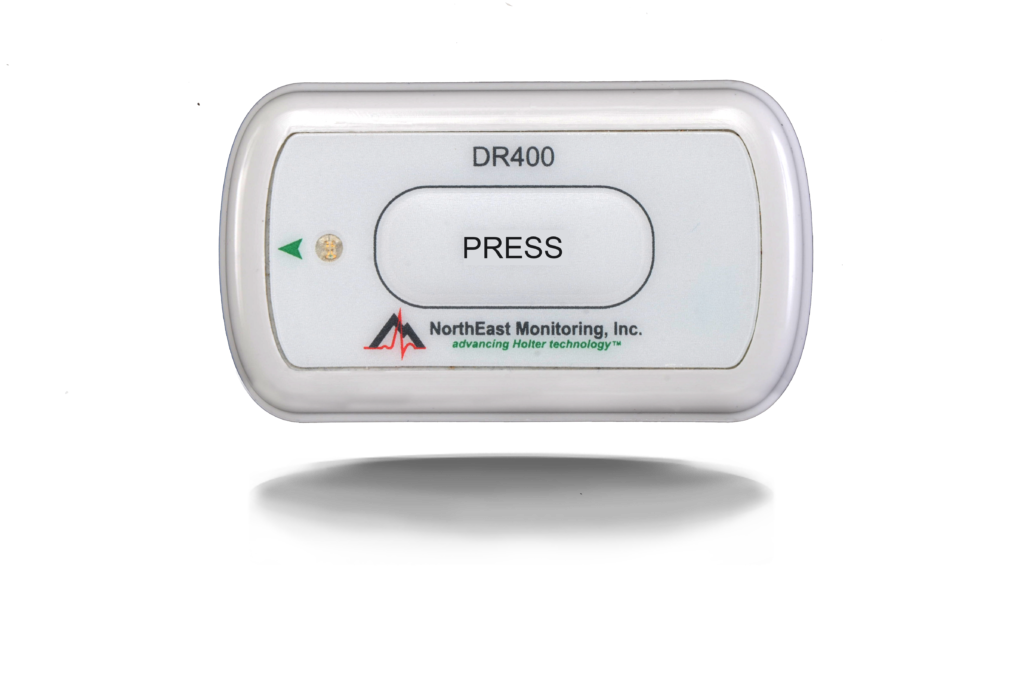 NorthEast DR 400
NorthEast DR 400
SpaceLabs Eclipse Mini - up to 14 days
Our standard monitors
|
Aria-24/48 hrs |
LifeCard-up to 1 week |
EVO-24/48 hrs |
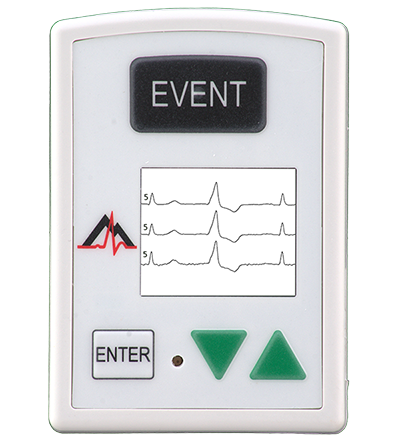
DR 200 - Both Holter and Event Monitor in one
How to apply the Holter Monitor
Please keep in mind that all animals are different so there will be some variation as to the final placement, which isn’t as important as being sure the electrodes stick firmly on the patient. The diagram shows the animal on it’s back utilizing the 4 lead digital monitor (there are several that we use depending upon the size and species.
The colors indicated are not necessarily the wire colors as some monitors have wires that are one color. The color of the slot where the wire goes into the cable or monitor (depending upon which type monitor you have) determines where to place the electrodes. The green colored slot is the ground (most important lead) which can be placed anywhere on the chest where it will be the most stable.
color. The color of the slot where the wire goes into the cable or monitor (depending upon which type monitor you have) determines where to place the electrodes. The green colored slot is the ground (most important lead) which can be placed anywhere on the chest where it will be the most stable.
Shave the area thoroughly. Snap the wires on to the electrodes (round white cloth) before putting on your patient (this will prevent you from pressing too hard on the chest when you snap them on). Secure with tape if needed. If your patient likes to chew, an E collar might be indicated.
Use VetWrap or some sort of elastic bandage to secure the wires and the monitor to the patient. Make sure it’s not too tight, just enough to hold things in place. If you have a vest/sweater, this can be placed over the wrap.
Follow instructions that are included in each shipment for the particular monitor you are using.
Please, do not remove the cable or wires from the monitor for any reason. If they are removed incorrectly, it can result in damaging the pins inside which will then have to be replaced at a cost to you of $600.00.
What's involved for you
- Keep them under adequate supervision while they go about normal activities wearing the Holter. A good analogy is to think of your dog/cat having stitches and bandages over the top - that gives you an idea of the kind of supervision and care you need to take while they're wearing the Holter. Try to keep them from being in places where the bandages could get snagged on something, and also avoid other animals jumping on them or chewing at the bandages.
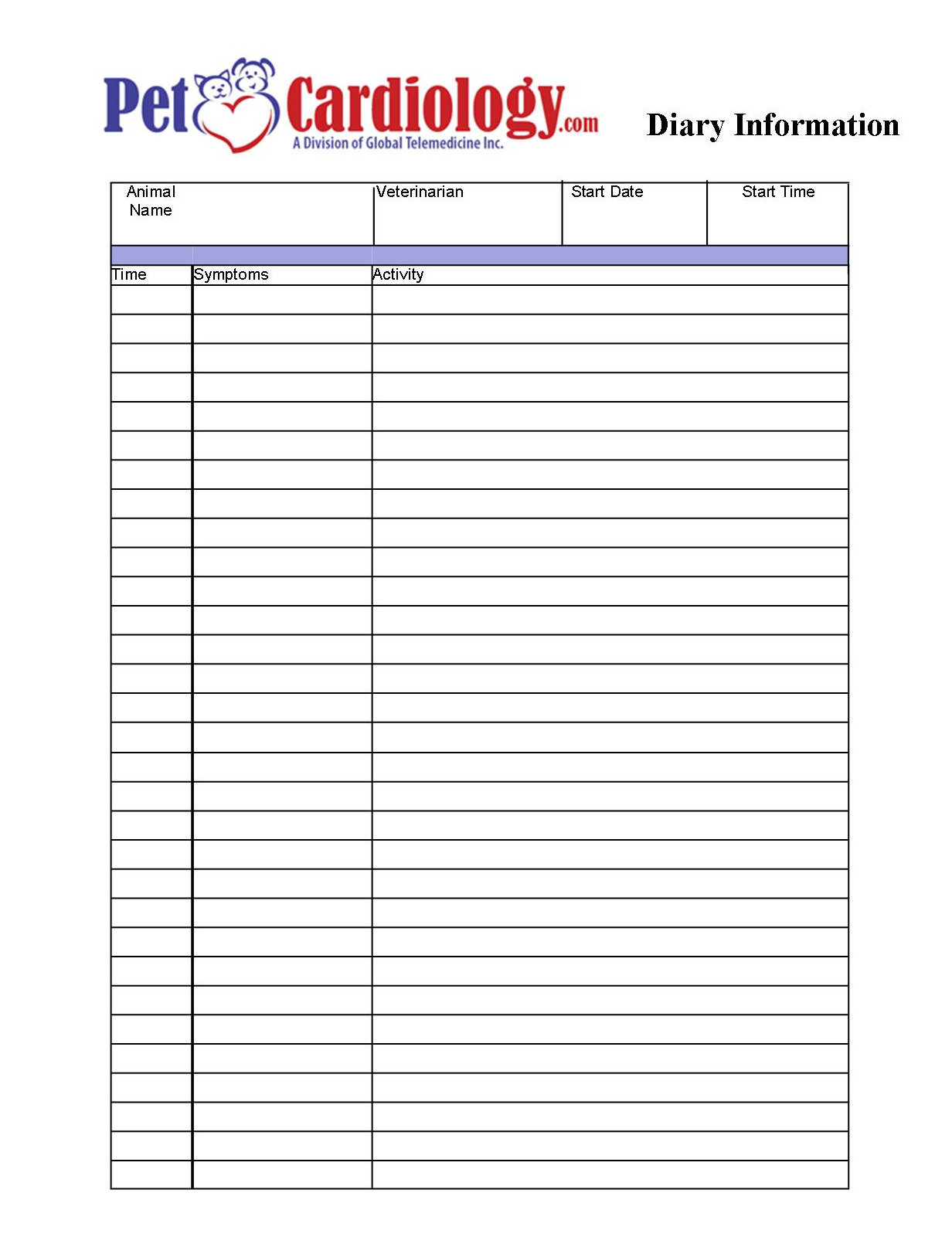
- Keep a diary of your pet's symptoms and activities as well as when medication is given.
- After 24 hours (or how ever long the monitoring period is) the Holter can be removed.
What can go wrong?
![]() It is possible that you wouldn’t get a decent reading because the electrodes weren’t secured enough. At Pet Cardiology, if a Holter isn’t readable, the second test is done at no charge but you do pay for shipping.
It is possible that you wouldn’t get a decent reading because the electrodes weren’t secured enough. At Pet Cardiology, if a Holter isn’t readable, the second test is done at no charge but you do pay for shipping.
![]() Leads may get damaged. It costs about $60.00 for a set of leads, including freight. The cable (some monitors only have wires) costs $250.00 to replace. This would only be likely to happen if your dog or cat isn’t supervised as it takes a lot of effort for them to get at the leads to damage them. Be careful not to cut the wires when removing the Holter! :(
Leads may get damaged. It costs about $60.00 for a set of leads, including freight. The cable (some monitors only have wires) costs $250.00 to replace. This would only be likely to happen if your dog or cat isn’t supervised as it takes a lot of effort for them to get at the leads to damage them. Be careful not to cut the wires when removing the Holter! :(
![]() The Holter unit may get damaged. The Holter monitor is pretty sturdy and can handle being bumped around through normal activities. Damage is only likely to occur if not properly supervised, e.g. left to chew the bandages and harness off, left with other animals, or left in an enclosure where the Holter unit could get caught or crushed. Also, if the Holter is not shipped back in the same envelope and packing material it could get damaged when being returned to us.
The Holter unit may get damaged. The Holter monitor is pretty sturdy and can handle being bumped around through normal activities. Damage is only likely to occur if not properly supervised, e.g. left to chew the bandages and harness off, left with other animals, or left in an enclosure where the Holter unit could get caught or crushed. Also, if the Holter is not shipped back in the same envelope and packing material it could get damaged when being returned to us.
Please do not get the monitor wet....no swimming or pool time while the monitor is being worn. This does not seem to be a problem with cats!
Common sense is normally enough to keep the equipment safe. Dogs are rather boisterous, more so than cats, so more attention is needed for dogs.
You should also beware of using any scanning company outside of the United States as they may not follow AAHA (American Animal Hospital Association) recommendations or adhere to our more strict educational and equipment requirements for processing quality cardiac analysis on a consistent basis.
Example of Holter hookup for a horse.



